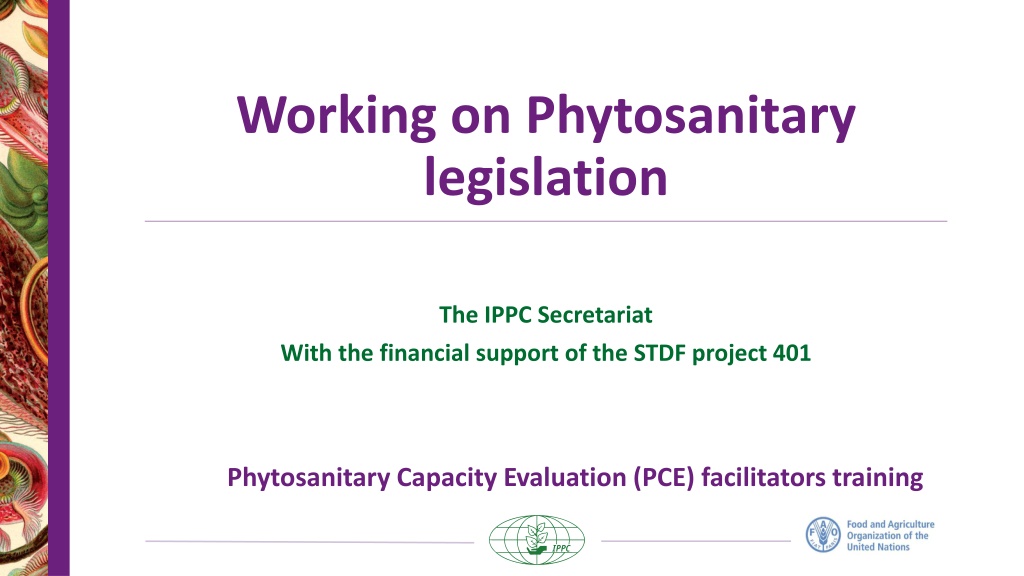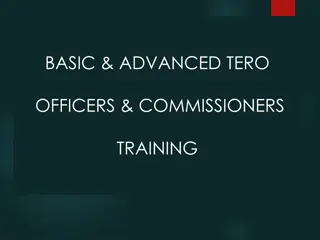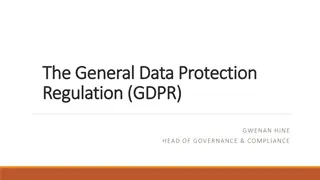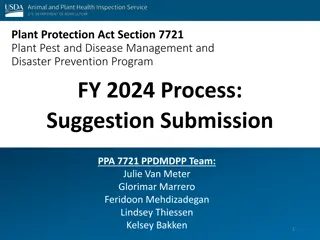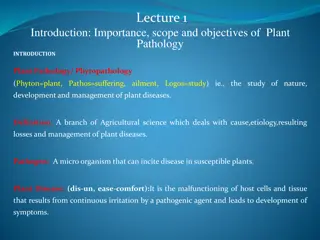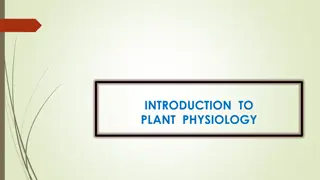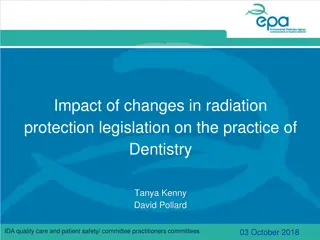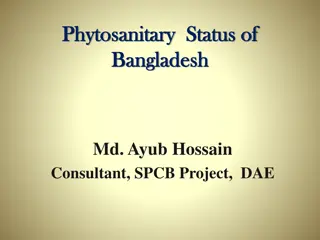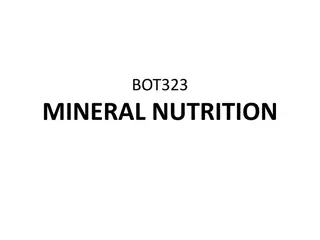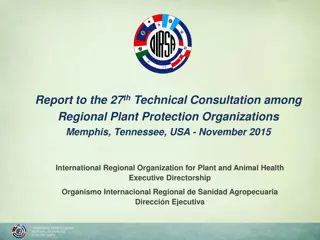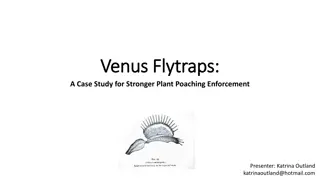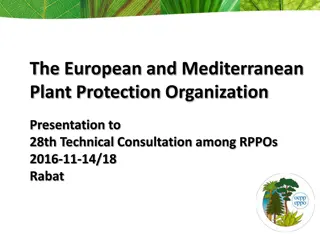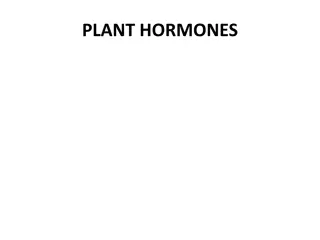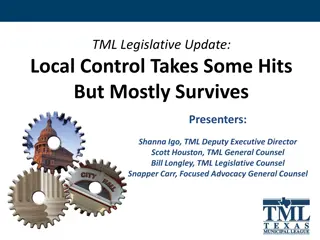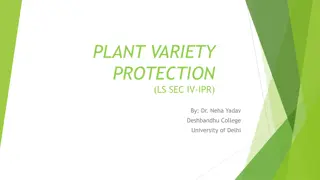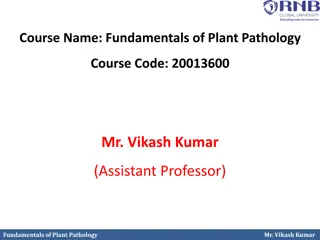Importance of Legislation in Plant Protection Efforts
Legislation plays a crucial role in implementing international obligations related to plant protection. Enacting national laws designates Competent Authorities, defines responsibilities, and provides the framework for public action. The IPPC requires contracting parties to integrate its provisions into national legislation, ensuring effective plant protection measures. Legal components, like those offered by the FAO Development Law Service, help strengthen legal frameworks in support of plant health. Collaborative legal drafting processes ensure tailored, comprehensive legislation aligned with national traditions and regulatory objectives.
Download Presentation

Please find below an Image/Link to download the presentation.
The content on the website is provided AS IS for your information and personal use only. It may not be sold, licensed, or shared on other websites without obtaining consent from the author. Download presentation by click this link. If you encounter any issues during the download, it is possible that the publisher has removed the file from their server.
E N D
Presentation Transcript
Working on Phytosanitary legislation The IPPC Secretariat With the financial support of the STDF project 401 Phytosanitary Capacity Evaluation (PCE) facilitators training
Summary of the session 1. The Development Law Branch of the Legal Office (LEGN) 2. Why a legal component 3. International trade 4. IPPC and ISPMs (a legal review) 5. Before drafting legislation 6. Elements of plant protection legislation
FAO Development Law Service: A group of 12 Lawyers, trained and specialized in the different legal systems providing assistance to Member Countries upon request to strengthen their legal frameworks on all areas under the mandate of the FAO. advice on legislative reforms legal information (www.faolex.fao.org) legal research (http://www.fao.org/Legal/pub-e.htm)
Approach Methodology Legal drafting through participatory processes Multidisciplinary Support of international and national consultants National legislation must be based on (i) national legal tradition, (ii) the national legal framework and (iii) the country regulatory objectives and international obligations Participatory Independent Tailor-made
Why is legislation important for plant protection? The IPPC is an International Convention Contracting parties are requested to implement it in their national legislation and to comply with a number of obligations included in the Convention Enacting national legislation is part of these obligations
Why is legislation important for plant protection? Legislation serves to implement the obligations of the IPPC in national legislation. It designates the Competent Authority (NPPO) and gives this authority the necessary power. It defines obligations and responsibilities. It defines the framework for public action. It approves implementation and enforcement measures.
Is policy the same as legislation? Policies set up government objectives, identify key trends and pave the way to coordination and integrated action. Legislation sets up compulsory obligations and responsibilities. Serves registries, licensing mechanisms and . sanctions! to schemes, create institutions, enforcement
Hierarchy of legislation CONSTITUTION ACT/ LAW/CODE (primary legislation) IMPLEMENTING LEGISLATION (secondary legislation)
Primary legislation Passed by the Legislative Branch of the State (with some exceptions, when the Constitution so stipulates). Constitutions frequently include an article defining the subject matters subject to the rule of law Lays down: Key obligations Powers and responsibilities of public authorities Institutional arrangements Basic rights and freedoms Enforcement powers (take samples, seize or destroy) Establishes criminal offences, fees and taxes
Secondary legislation Implementing legislation (regulations, orders, etc) Enacted by executive branch (e.g. Cabinet or Minister) Legal basis in primary law: it cannot exceed the scope of the law, create new powers or approve new sanctions Lays down: Technical requirements Detailed procedures Useful for technical or scientific details that change quickly
Discussion: Under which type of legislation would you regulate .? The powers of inspectors Inspection procedures The power to issue phytosanitary certificates The procedure to apply for an import permit
See full size image Thank you very much Carmen Bullon - Carmen.Bullon@fao.org Lalaina Ravelomanantsoa Lalaina.Ravelomanantsoa@fao.org Legal Officers -FAO Development Law Service FAO Legal Office
